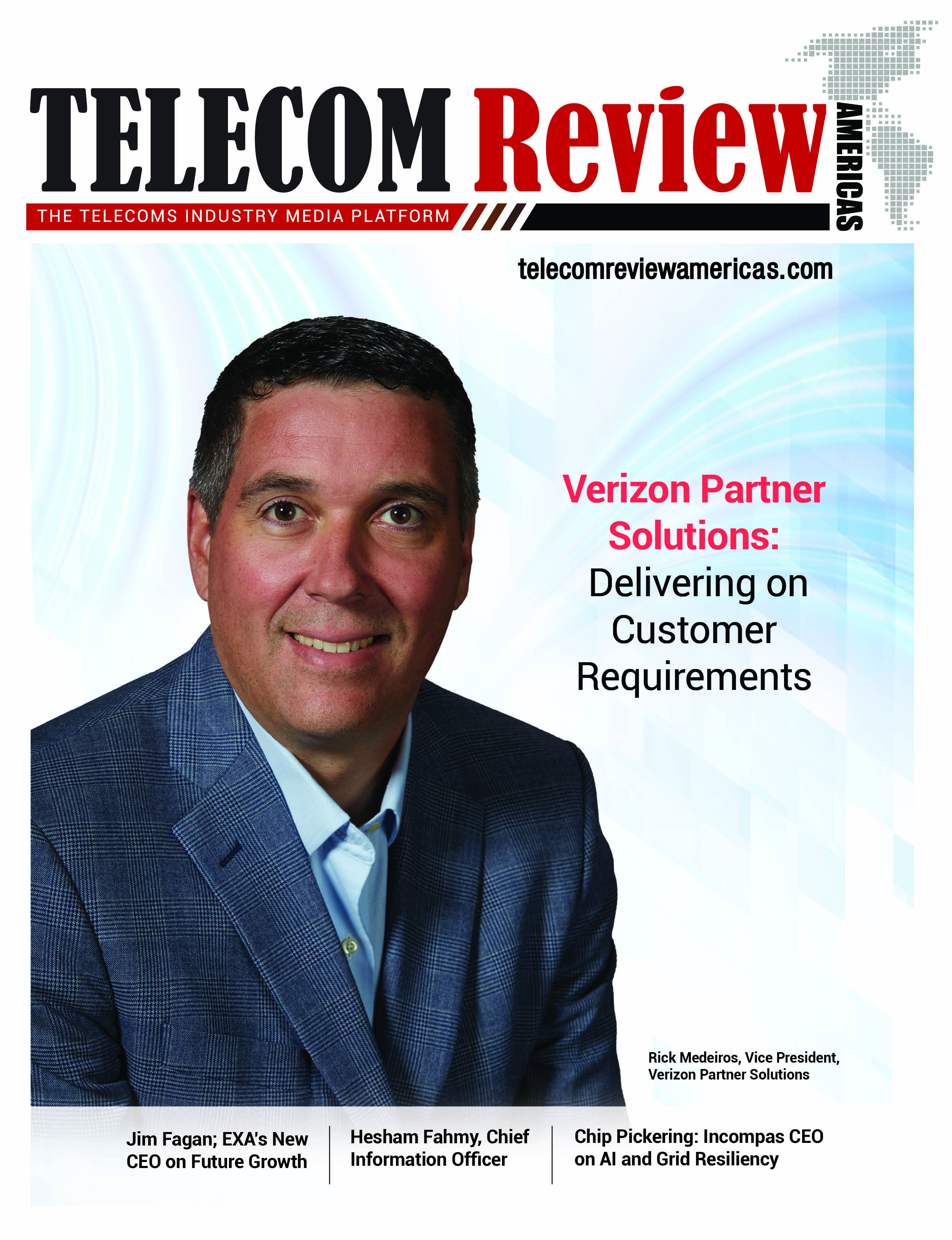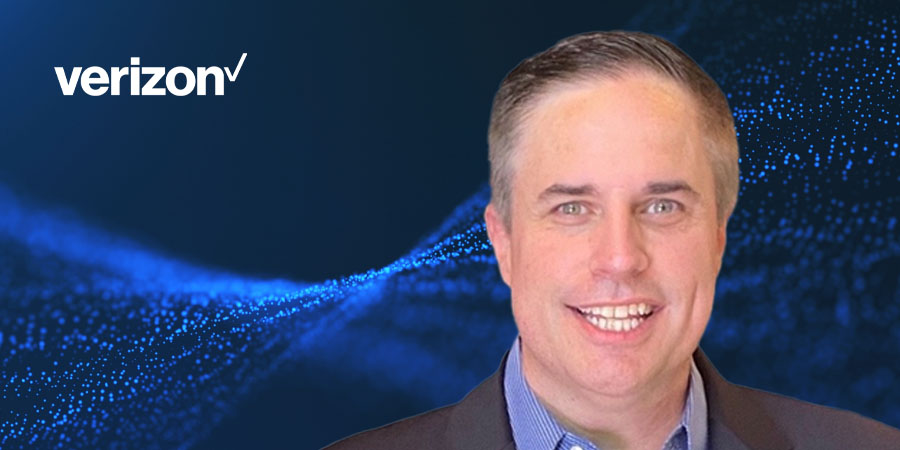The newly-appointed Group President of Verizon Partner Solutions Jeff Hulse had an exclusive interview with Telecom Review. He shares the strategic vision of VPS, and how this will be fulfilled through collaboration, best customer experience delivery, and 5G network expansion, among other factors. Notably, Hulse emphasized that “no one can succeed alone and partnerships are proving to be more important than ever in our connected ecosystem.
Please tell us about yourself and your strategic vision for Verizon Partner Solutions (VPS).
I’m a big believer in learning and in my 25+ years at Verizon, I’ve worked in many different roles including network operations, sales, marketing, strategy, and process engineering. Most recently, I led the Sales and Solutions Engineering teams for VPS in North America, and now I’m stepping into a new role as Group President of Verizon Partner Solutions, the organization that serves the Global Wholesale Channel for Verizon Business.
Verizon’s vision is to “Build the Networks That Move The World Forward” and providing customers and partners access to Verizon’s networks is central to our vision and is our strategy.
VPS is already an incredible powerhouse. We pride ourselves on ensuring people feel heard: whether that’s our customers who know that we act on what they say when delivering award-winning solutions and products, or whether that’s our employees, as we’re extremely proud of our internal culture. So when I look at our strategy over the next five years, I see an opportunity to capitalize further the investments that Verizon continuously makes in our network, and the use cases we can deliver on that network. We always start with the customer's need or a problem they are trying to solve. Next, we evaluate potential technology solutions and figure out how to productize and operationalize between VPS and our partners, which ultimately provides a better experience for the customer.
How does Verizon plan to stay competitive and innovative in the coming years?
To ‘Move the World Forward” takes an ecosystem, and our ecosystem partners help drive innovation. To stay competitive, Verizon provides the best network to our partners. That is why I always come back to the strength of our network.
As of October 2023, more than 230 million people are covered by Verizon’s 5G service, and 99% of the US population has 4G LTE coverage. And we keep announcing further upgrades in our network services each month, all of which is part of a massive multi-year network transformation journey that we’re on. We’re adding capabilities, upgrading the technology in the network, paving the way for personalized customer experiences and providing a platform for businesses and developers to innovate on. This includes our fiber network as well: we’re upgrading our fiber backhaul from one gigabit per second to 10 gigabits per second, and since 2020, we’ve deployed nearly 57k fiber miles.
All of this investment provides multiple partnership opportunities across the wholesale market, and we have been able to make products and services available across our fiber connectivity and wireless - FWA, Private 5G networks and IoT - portfolios.
Can you provide insights into Verizon's plans for 5G network expansion and development?
As I mentioned, Verizon is aggressively expanding its 5G coverage. In August 2023, we announced that we had use of our entire C-Band spectrum four months early, meaning we’re able to deploy even faster than expected. We’ll continue to invest and innovate to ensure we have a reliable and secure network for all of our customers.
How do you see 5G impacting both consumers and businesses in the near future?
At this point, 5G is already having an impact. For consumers, that includes faster internet speeds, improved device connectivity and an overall enhanced mobile experience. For businesses, the use cases we’ve built in the last year alone with our customers are highlighting the power of 5G for business.
One example from Verizon Business is our work with Arizona State University which uses 5G to transform teaching and learning. In partnership with Dreamscape Immersive, a California-based company and powered by Verizon 5G, ASU is now offering an intro to biology course where VR experiences replace the traditional lab experiences. After the course ended, data showed that students learning via these experiences performed better than their counterparts in the labs. And that’s just one example of how 5G is opening new possibilities for innovation.
What initiatives is VPS undertaking to enhance the overall customer experience?
VPS takes pride in consistently working to improve our customers’ experience with us. We are now in our sixth year and over $50 million invested in our Verizon Partner Solutions Exchange platform / API development journey, driving towards a frictionless experience for our customers. This started with understanding how each of our customer segments have different personas when they transact across location availability, quoting, pricing, ordering, installation and care, and then building a platform that can adapt. We’re also continuing to partner with standards bodies like MEF and TM Forum as we roll out new capabilities so we can scale with the industry, globally. These initiatives and this investment has recently been recognized with Telecom Review’s Best Digital Customer Experience - North America!
How is VPS addressing customer feedback and adapting its services accordingly?
As mentioned, we continuously collect and analyze customer insights through various channels, such as surveys, our VPS Partner Summit, Customer Advisory Boards or direct customer interactions. From there, improvements are implemented to streamline customer service processes, ensuring quicker issue resolution times and a more user-friendly interface.
This year, we’re pushing ourselves even further with initiatives focused on areas such as service delivery intervals and mean time to resolution, in order to create the best customer experience possible at every touchpoint of a customer’s journey.
A recent example was when customers indicated one of our FWA Wireless Backup pooled plans was too restrictive from an overage perspective. Following this feedback, we modified our offering to allow independent plans to be pooled together, which created a less costly and restrictive solution for our customers who appreciated our flexibility and response to their specific pain point.
How is Verizon Business approaching emerging technologies such as artificial intelligence, IoT, and edge computing?
We’re providing our partners with emerging technology solutions like FWA, IoT, Private 5G and multi-access edge computing (MEC) for network optimization, customer service, and predictive analytics. For example, IoT solutions are being deployed to support business applications. These advances allow for our partners and their end-user customers to solve business challenges differently and with new commercial models that drive innovation. Our approach is to create a culture of innovation and learning while taking full advantage of the excitement and the opportunities new technologies can provide.
Are there specific industries or sectors where VPS sees significant growth opportunities?
I’m personally very excited about 2024 and the opportunities we have to accelerate, particularly in FWA, IoT and Private Networks, as the past few years have seen strong growth in the innovative use cases deploying these technologies. Currently, we are working with many partners on their migration strategies from copper-based TDM and POTs services to “Copper Catch” products like FWA. We see a real opportunity to continue filling our domestic voice network and growing our wireless backhaul, infrastructure, and network connectivity reach. We’re seeing increased opportunities in mid- and emerging market segments and these offerings match their network fiber connectivity needs, which include ethernet, internet, wave and nationwide broadband.
What steps is Verizon taking to reduce its environmental impact and promote sustainability?
Sustainability is deeply integrated into Verizon's corporate strategy. We align our operations with eco-friendly practices, and have a number of sustainable initiatives and goals that we’ve set for ourselves, which includes a detailed plan to reach operational net zero. Initiatives within that include implementing measures to reduce our carbon footprint, investing in renewable energy sources to power network infrastructure, and setting ambitious goals for reducing electronic waste while increasing recycling efforts.
How does collaboration with other companies contribute to VPS’s overall objectives?
In my opinion, no one can succeed alone and partnerships are proving to be more important than ever in our connected ecosystem. Our collaborations are crucial to achieving our objectives: they allow us to think smarter, offer better services and solutions, and overall strengthen our market position.
For example, at VPS we leverage partnerships like the Global Leaders Forum (GLF) and our Customer Advisory Boards, which provides all involved access to complementary technologies, experience and expertise. And it should always be reciprocal: a successful collaboration is one in which all collaborators share in the wins, which are not only about enhancing market reach but also the development and delivery of integrated solutions that address customer pain points.
In an increasingly digital world, how is VPS addressing cybersecurity challenges for both its network and its customers?
Verizon Business has a long record in cybersecurity. Last year was the 20th anniversary of the Verizon Threat Research Advisory Center (VTRAC), a division of Verizon’s cybersecurity practice that helps customers during security incidents regain control and further mitigate threats across their networks, applications and devices. We also publish the Data Breach Investigation Report (DBIR) annually, which is an industry-leading report on the current threat landscape. So cybersecurity is woven into the very fabric of our network and our work. And it’s something our customers are able to take advantage of.
For example, within VPS we have an robust portfolio of cybersecurity offerings such as DDoS Shield (our carrier agnostic anti-DDoS platform solution); Network Detection and Response (our cloud-based packet capture platform that identifies cyber threats and observations traversing customer networks); and our Network Detection and Response for Verizon Business Internet Security, which can be added to our FWA plans.






























